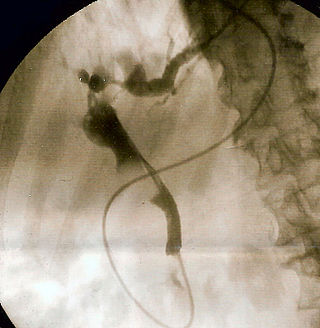
The Transport Act 1962 is an Act of the Parliament of the United Kingdom. Described as the "most momentous piece of legislation in the field of railway law to have been enacted since the Railway and Canal Traffic Act 1854", it was passed by Harold Macmillan's Conservative government to dissolve the British Transport Commission (BTC), which had been established by Clement Attlee's Labour government in 1947 to oversee railways, canals and road freight transport. The Act established the British Railways Board, which took over the BTC's railway responsibilities from 1 January 1963 until the passing of the Railways Act 1993.

Delict in Scots law is the area of law concerned with those civil wrongs which are actionable before the Scottish courts. The Scots use of the term 'delict' is consistent with the jurisdiction's connection with Civilian jurisprudence; Scots private law has a 'mixed' character, blending together elements borrowed from Civil law and Common law, as well as indigenous Scottish developments. The term tort law, or 'law of torts', is used in Anglo-American jurisdictions to describe the area of law in those systems. Unlike in a system of torts, the Scots law of delict operates on broad principles of liability for wrongdoing: 'there is no such thing as an exhaustive list of named delicts in the law of Scotland. If the conduct complained of appears to be wrongful, the law of Scotland will afford a remedy even if there has not been any previous instance of a remedy being given in similar circumstances'. While some terms such as assault and defamation are used in systems of tort law, their technical meanings differ in Scottish delict.

In tort law, a duty of care is a legal obligation that is imposed on an individual, requiring adherence to a standard of reasonable care to avoid careless acts that could foreseeably harm others, and lead to claim in negligence. It is the first element that must be established to proceed with an action in negligence. The claimant must be able to show a duty of care imposed by law that the defendant has breached. In turn, breaching a duty may subject an individual to liability. The duty of care may be imposed by operation of law between individuals who have no current direct relationship but eventually become related in some manner, as defined by common law.

English tort law concerns the compensation for harm to people's rights to health and safety, a clean environment, property, their economic interests, or their reputations. A "tort" is a wrong in civil law, rather than criminal law, that usually requires a payment of money to make up for damage that is caused. Alongside contracts and unjust enrichment, tort law is usually seen as forming one of the three main pillars of the law of obligations.

Rylands v Fletcher (1868) LR 3 HL 330 is a leading decision by the House of Lords which established a new area of English tort law. It established the rule that one's non-natural use of their land, which leads to another's land being damaged as a result of dangerous things emanating from the land, is strictly liable.
Volenti non fit iniuria is a Roman legal maxim and common law doctrine which states that if someone willingly places themselves in a position where harm might result, knowing that some degree of harm might result, they are not able to bring a claim against the other party in tort or delict. Volenti applies only to the risk which a reasonable person would consider them as having assumed by their actions; thus a boxer consents to being hit, and to the injuries that might be expected from being hit, but does not consent to his opponent striking him with an iron bar, or punching him outside the usual terms of boxing. Volenti is also known as a "voluntary assumption of risk".
In English tort law, an individual may owe a duty of care to another, in order to ensure that they do not suffer any unreasonable harm or loss. If such a duty is found to be breached, a legal liability will be imposed upon the tortfeasor to compensate the victim for any losses they incur. The idea of individuals owing strangers a duty of care – where beforehand such duties were only found from contractual arrangements – developed at common law, throughout the 20th century. The doctrine was significantly developed in the case of Donoghue v Stevenson, where a woman succeeded in establishing a manufacturer of ginger beer owed her a duty of care, where it had been negligently produced. Following this, the duty concept has expanded into a coherent judicial test, which must be satisfied in order to claim in negligence.
In English law, remoteness between a cause of action and the loss or damage sustained as a result is addressed through a set of rules in both tort and contract, which limit the amount of compensatory damages available for a wrong.

The Occupiers' Liability Act 1957 is an Act of the Parliament of the United Kingdom that covers occupiers' liability. The result of the Third Report of the Law Reform Committee, the Act was introduced to Parliament as the Occupiers' Liability Bill and granted royal assent on 6 June 1957, coming into force on 1 January 1958. The Act unified several classes of visitors to property and the duty of care owed to them by the occupier, as well as codifying elements of the common law relating to this duty of care. It also covered the duty owed to parties to a contract entering the property and ways of excluding the liability for visitors. The Act introduced an element of liability for landlords who failed to maintain their properties and were as a result responsible for the injury of a non-tenant, something counter to the previous common law rule in English law. The Act is still valid law, and forms much of the law relating to occupiers' liability in English law along with the Occupiers' Liability Act 1984.
Occupiers' liability is a field of tort law, codified in statute, which concerns the duty of care owed by those who occupy real property, through ownership or lease, to people who visit or trespass. It deals with liability that may arise from accidents caused by the defective or dangerous condition of the premises. In English law, occupiers' liability towards visitors is regulated in the Occupiers' Liability Act 1957. In addition, occupiers' liability to trespassers is provided under the Occupiers' Liability Act 1984. Although the law largely codified the earlier common law, the difference between a "visitor" and a "trespasser", and the definition of an "occupier" continue to rely on cases for their meaning.

The Occupiers' Liability Act 1984 is an Act of the Parliament of the United Kingdom that covers occupiers' liability for trespassers. In British Railways Board v Herrington 1972 AC 877, the House of Lords had decided that occupiers owed a duty to trespassers, but the exact application of the decision was unclear. The matter was then referred to the Law Commission for a report, and as a result the Occupiers' Liability Bill was introduced to Parliament by Lord Hailsham on 23 June 1983. The Act was given the royal assent on 13 March 1984 as the Occupiers' Liability Act 1984 and came into force on 13 May.
Wheat v E Lacon & Co Ltd [1966] 1 All ER 582 is a decision of the House of Lords concerning the definition of "occupier" for the purposes of Occupiers' Liability Act 1957. The leading speech in the case was delivered by Lord Denning MR.

Tomlinson v Congleton Borough Council [2003] UKHL 47 is a 2003 court case in England from the House of Lords regarding the torts of negligence and occupiers' liability.

Donoghue v Folkestone Properties Limited (2003) is an English court case heard in the Court of Appeal of England and Wales concerning the tort of occupiers' liability from the Occupiers' Liability Act 1984.

Bailey v Ministry of Defence [2008] EWCA Civ 883 is an English tort law case. It concerns the problematic question of factual causation, and the interplay of the "but for" test and its relaxation through a "material contribution" test.
Vicarious liability in English law is a doctrine of English tort law that imposes strict liability on employers for the wrongdoings of their employees. Generally, an employer will be held liable for any tort committed while an employee is conducting their duties. This liability has expanded in recent years following the decision in Lister v Hesley Hall Ltd to better cover intentional torts, such as sexual assault and deceit. Historically, it was held that most intentional wrongdoings were not in the course of ordinary employment, but recent case law suggests that where an action is closely connected with an employee's duties, an employer can be found vicariously liable. The leading case is now the Supreme Court decision in Catholic Child Welfare Society v Institute of the Brothers of the Christian Schools, which emphasised the concept of "enterprise risk".
The omissions of individuals are generally not criminalised in English criminal law, save in many instances of a taking on of a duty of care, having contractual responsibility or clearly negligent creation of a hazard. Many comparator jurisdictions put a general statutory duty on strangers to rescue – this is not so in English law. Defenders and reasoners of the position regard it as wrong for the criminal law to punish people in many circumstances for committing no physical act, which it is argued would be an infringement on human autonomy. Academics arguing for reform argue that a social responsibility to assist others should exist, particularly where there would be no danger to the rescuer.

Dutton v Bognor Regis Urban District Council [1972] 1 QB 373 is an English contract law and English tort law case concerning defective premises and the limits of contract damages. It was disapproved by the House of Lords in Murphy v Brentwood DC and is now bad law except in Canada and New Zealand.

The floodgates principle, or the floodgates argument, is a legal principle which is sometimes applied by judges to restrict or limit the right to make claims for damages because of a concern that permitting a claimant to recover in such situations might open the metaphorical "floodgates" to large numbers of claims and lawsuits. The principle is most frequently cited in common law jurisdictions, and in English tort law in particular.

Weir-Rodgers v SF Trust Ltd [2005] IESC 2 is a reported decision of the Irish Supreme Court that confirmed that under Section 4 of the Occupiers Liability Act 1995 an occupier of land is not required to take all reasonable care to safeguard the person or property of either trespassers or recreational users.











